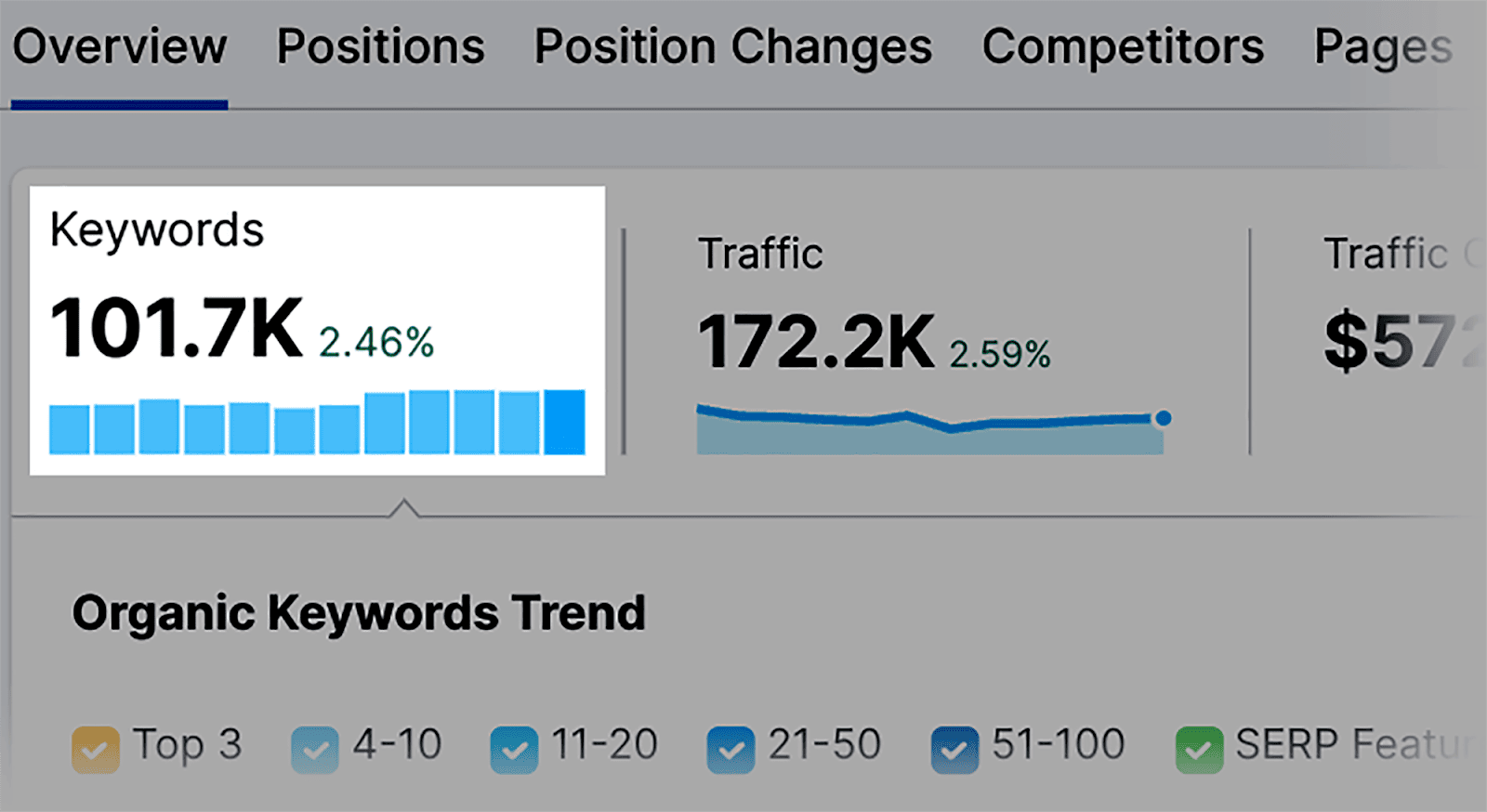Tube Rank: Your Guide to Video Success
Discover tips and insights for optimizing your video presence.
Keyword Ranking: A Dance with Google’s Algorithm
Unlock the secrets of keyword ranking and master Google’s algorithm to skyrocket your traffic! Don’t miss out on this essential guide!
Understanding Google’s Algorithm: Key Factors That Influence Keyword Ranking
Understanding Google’s algorithm is crucial for anyone looking to improve their website's visibility in search engine results. Several key factors play a significant role in determining keyword ranking. One of the most important factors is content quality, which refers to how well your content meets the needs and expectations of your audience. Google uses algorithms to assess content based on relevance and user engagement metrics, such as bounce rates and time spent on the page. Additionally, backlinks from authoritative sites are vital for improving your site's credibility and ranking potential.
Another critical factor influencing keyword ranking is on-page SEO. This includes the strategic use of keywords within your content, as well as the proper use of meta tags and header tags. Moreover, optimizing for mobile-friendliness and ensuring quick loading times are essential aspects that Google considers. As user experience evolves, incorporating social signals and utilizing structured data can further enhance your content's visibility in search results. By focusing on these factors, you can significantly improve your chances of ranking higher in Google's search results.

How to Optimize Your Content for Better Keyword Ranking in 2023
To effectively optimize your content for better keyword ranking in 2023, start by conducting thorough keyword research. Use tools like Google Keyword Planner or SEMrush to identify keywords that are relevant to your niche and possess a good balance of search volume and competition. Once you've chosen your target keywords, incorporate them naturally throughout your content, particularly in key areas like the title, headings, and the introductory paragraph. Avoid keyword stuffing, as search engines may penalize pages that do not prioritize user experience.
Another crucial aspect of optimizing your content is ensuring that it is engaging and valuable to readers. Focus on producing high-quality content that answers users' queries and provides in-depth information. Break your content into easily digestible sections using subheadings and bullet points where appropriate. Additionally, consider updating older content to include trending keywords or revised information—a practice that can significantly boost your keyword ranking over time. Lastly, encourage user interaction by including calls to action or questions at the end of your posts to keep readers engaged.
What Are the Common Misconceptions About Keyword Ranking and SEO?
When it comes to keyword ranking and SEO, many individuals harbor misconceptions that can hinder their online success. One prevalent myth is that achieving a high keyword ranking guarantees increased website traffic. While a top position in search engine results can improve visibility, it doesn't always translate to more clicks. Factors such as search intent and the quality of your website's content play a crucial role in conversion rates. Thus, focusing solely on keyword ranking can be misleading; instead, it's essential to consider user engagement and value delivery.
Another common misconception is that SEO is a one-time task rather than an ongoing process. Many believe that simply optimizing their website for certain keywords will suffice for long-term success. In reality, SEO requires continuous effort due to ever-evolving algorithms and changing user behaviors. Regularly updating content, monitoring performance, and adapting strategies is vital. In this fast-paced digital landscape, neglecting SEO can lead to declining rankings over time, further emphasizing the need for a proactive approach.